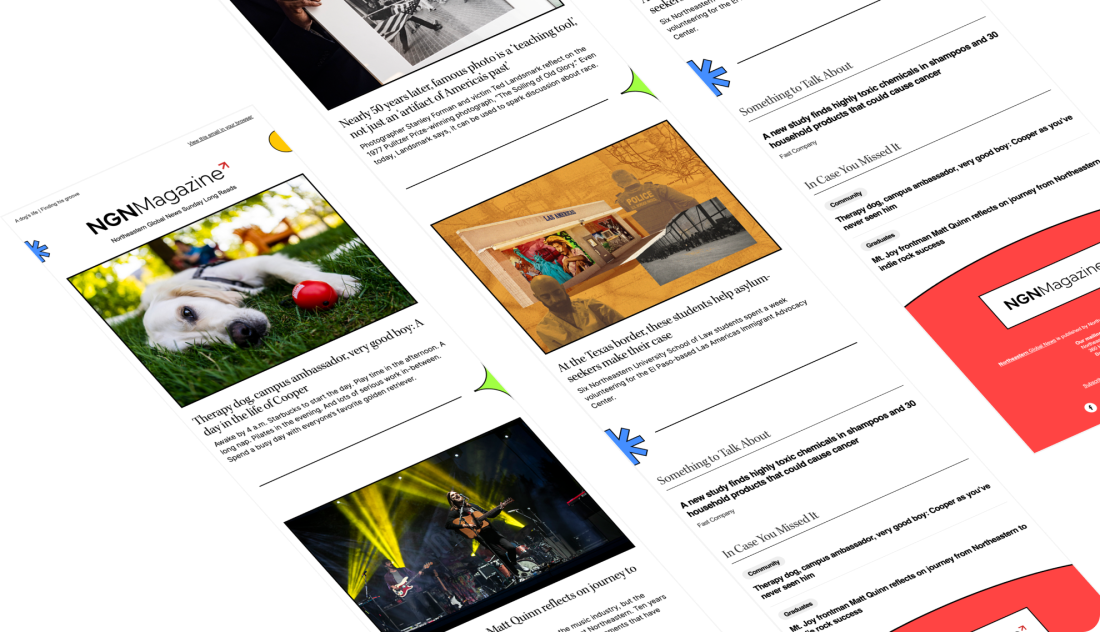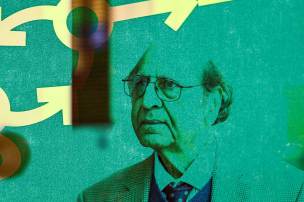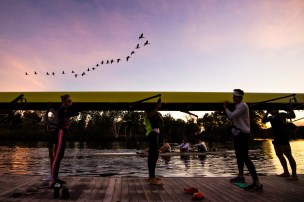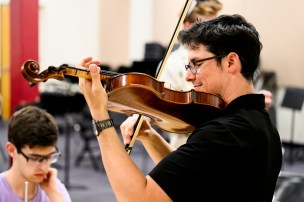Published on
How this class is preparing students
for the world of music festivals
Want to try your hand at a designing a music festival or learn about the history of these events? These Northeastern experiential learning courses help create the next generation of festival organizers.
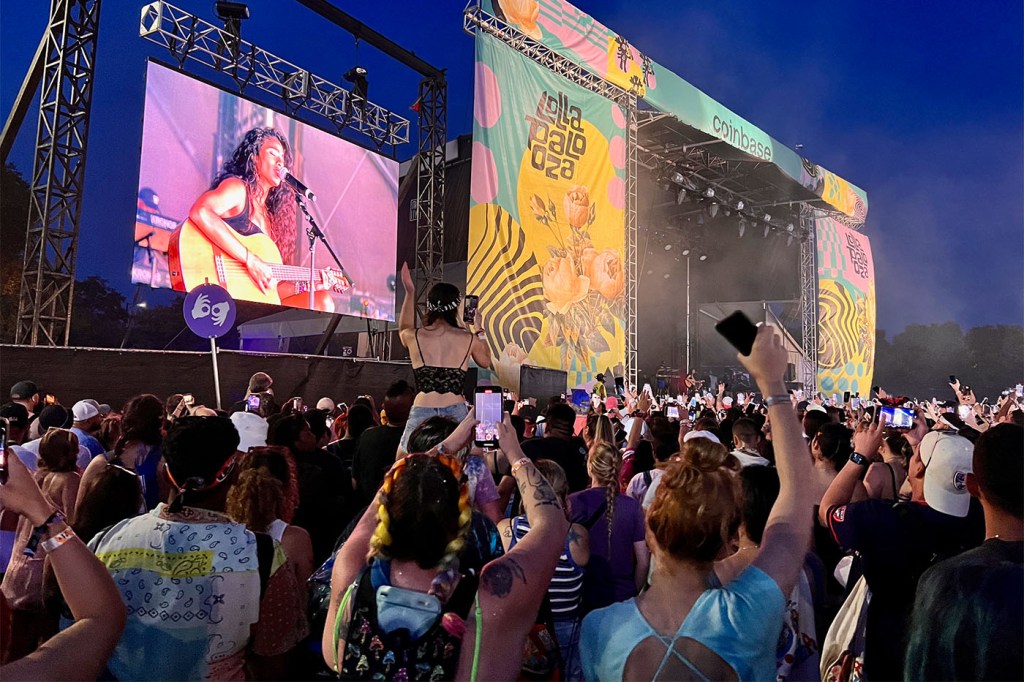
Danny Wimmer Presents had a simple goal: Cut down on the environmental impact of the rock festivals they produce.
Luckily, Duncan Chamberlain had read up on this topic. Before joining the company for co-op earlier this year, the junior music industry major at Northeastern University took “Making a Festival,” a newly designed course dedicated to teaching students what it takes to make a music festival, particularly ones that are community and eco-friendly.
From this, Chamberlain was able to make suggestions during his co-op to help the company achieve its goals.
“I stepped in and was like ‘I actually know a lot about this,’” Chamberlain said. “We switched from golf carts (to get around the venue) to bikes, which seems simple, but … it’s a pretty big deal. It’s a pretty easy thing to do and immediately cuts down impact.”
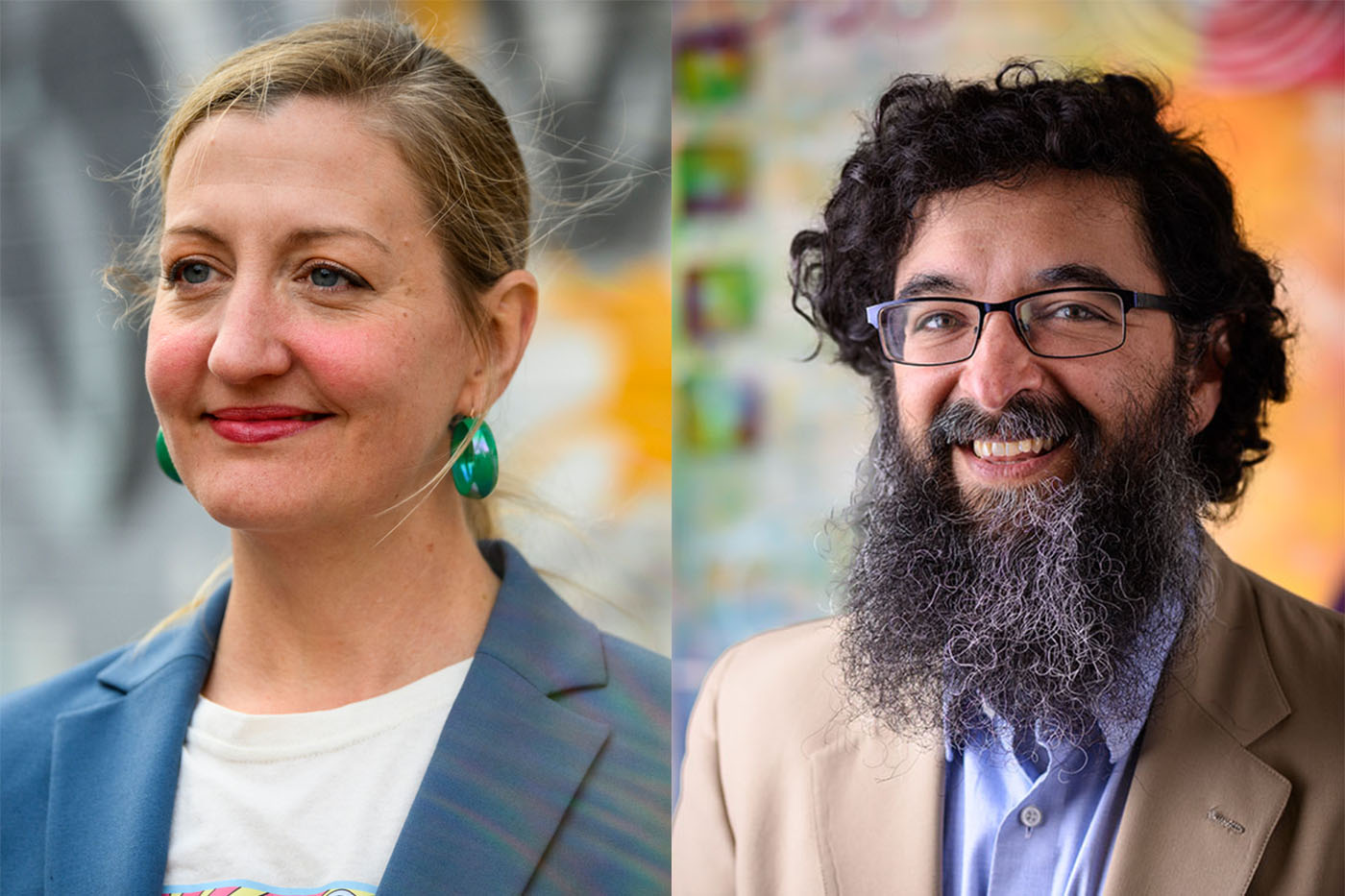
It might be hard to imagine a whole course on festivals, but they have a deep history in the music industry and employ many in the field. This makes learning about festivals — both the why and the how — particularly valuable for music industry students at Northeastern.
Over the last year, the university launched two newly designed courses that offer different perspectives on how to run a successful music festival. Making a Festival is a new iteration of a previously existing course that was tweaked by CAMD assistant professor Rebekah Moore.
Moore has a long history of working in festivals and live events. Before coming to Northeastern, she lived in Indonesia for 10 years where she ran an international yoga, dance and music festival, as well as a couple smaller events.
“Essentially, I turned the classroom into a production team,” Moore said. “I thought it made the most sense to focus on the practical skills (students) would need to develop to work in festival production.”
Moore starts the course teaching about the “why” and “how” of festivals, with a focus on what Moore describes as “the four pillars” of festival planning: diversity, community engagement, accessibility and environmental sustainability. (And yes, students do get to do case studies on the more notable “festivals gone wrong.”) Students then had to incorporate these factors when planning their festival.
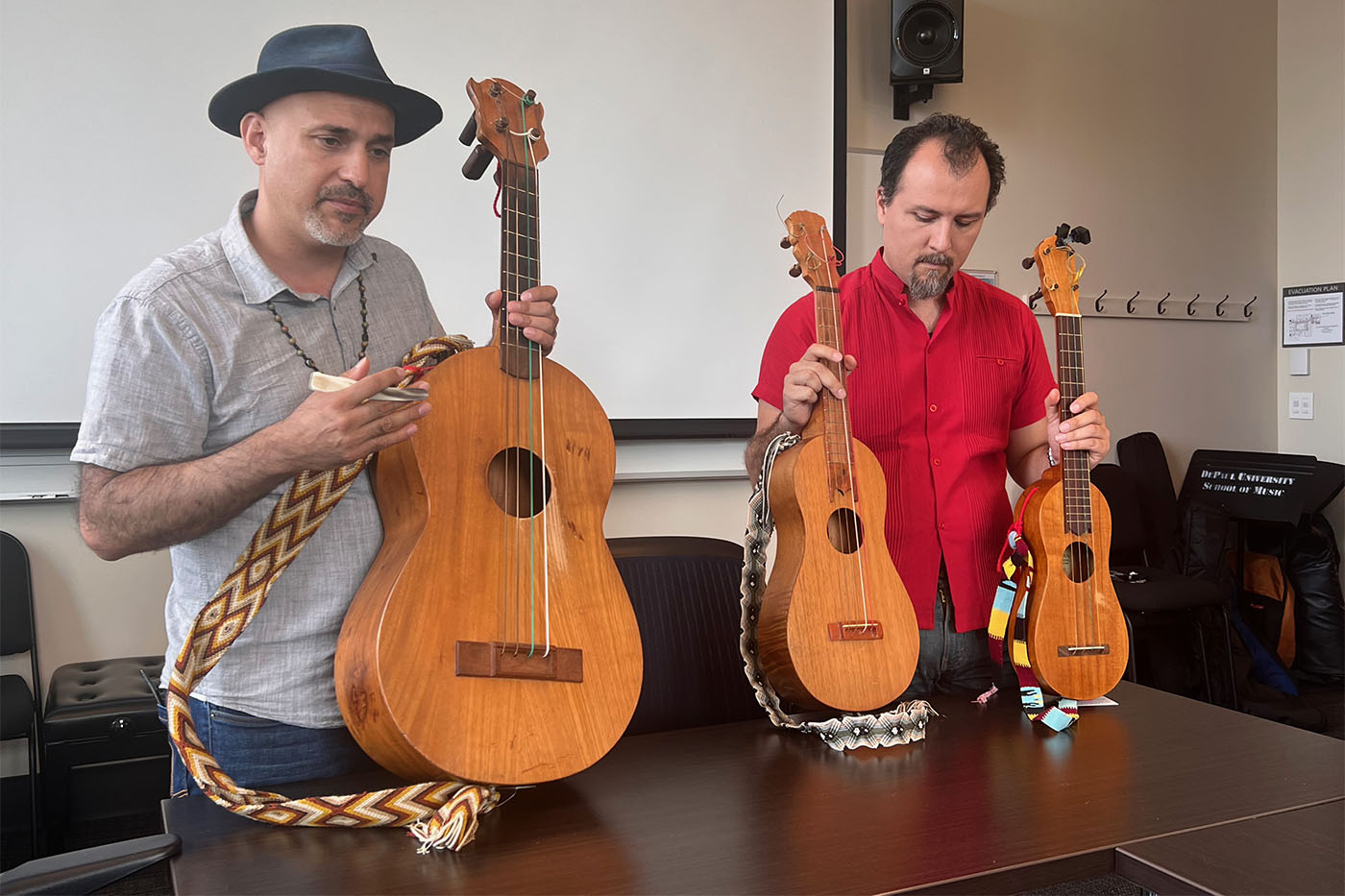
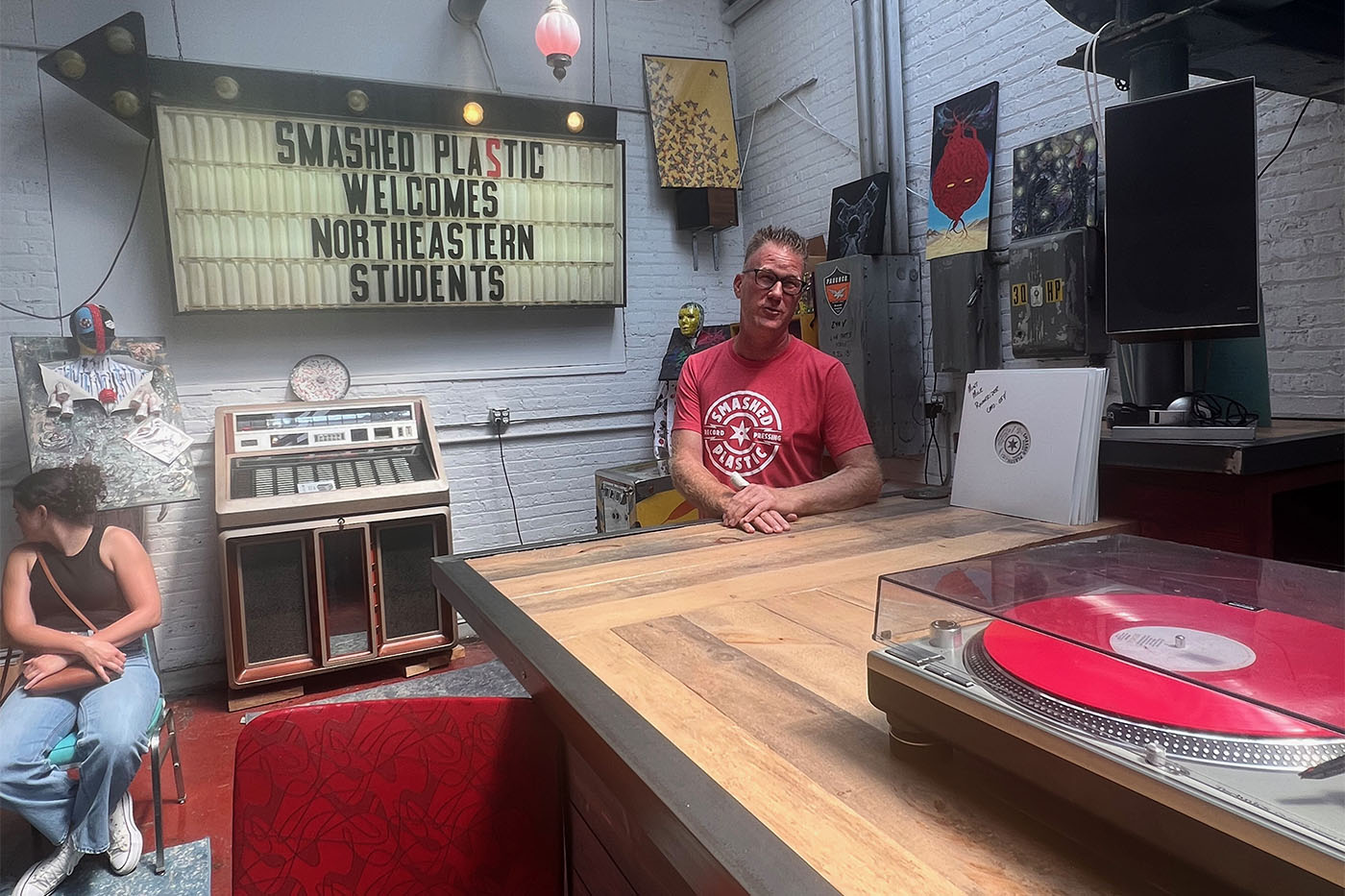
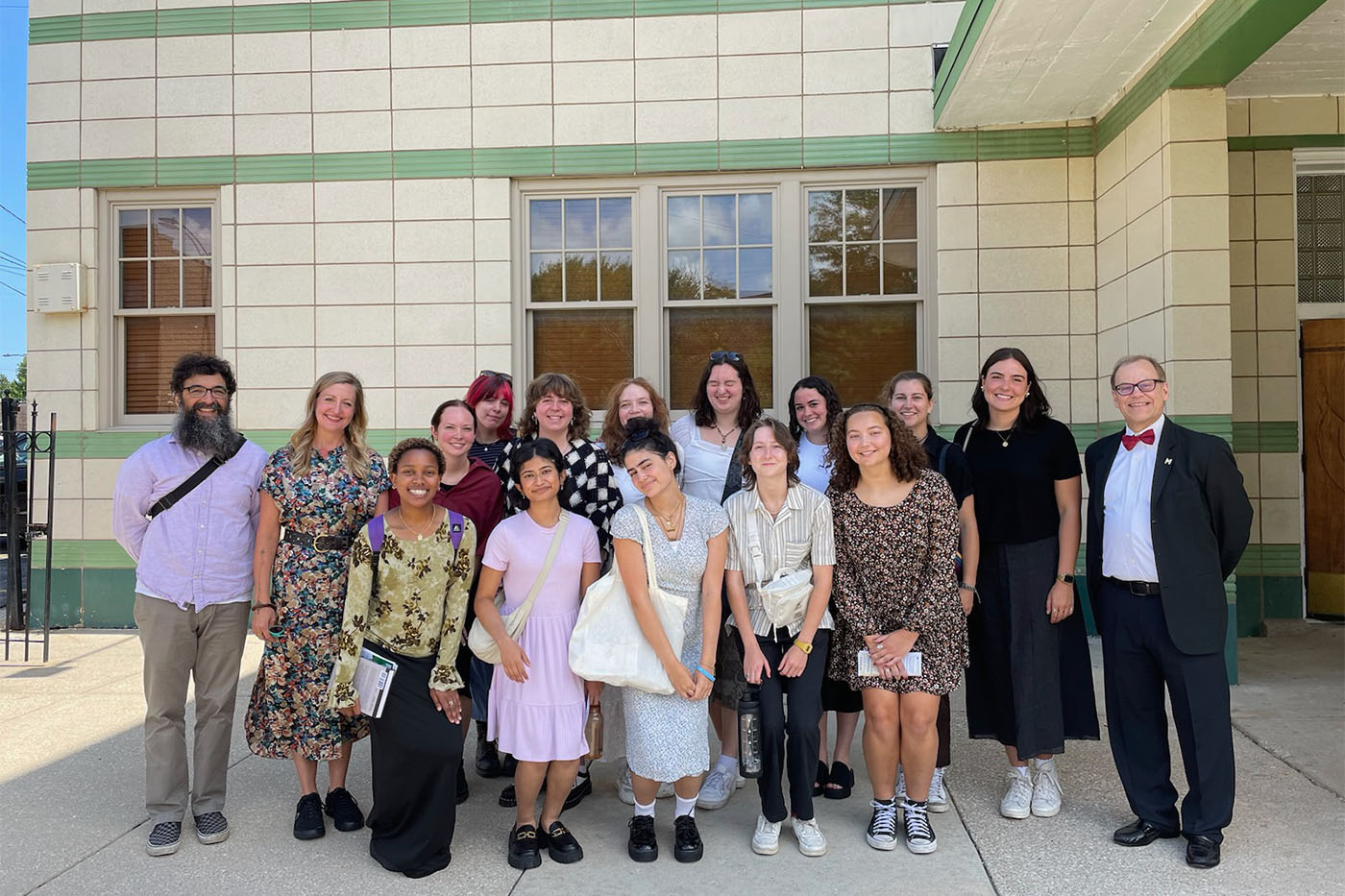
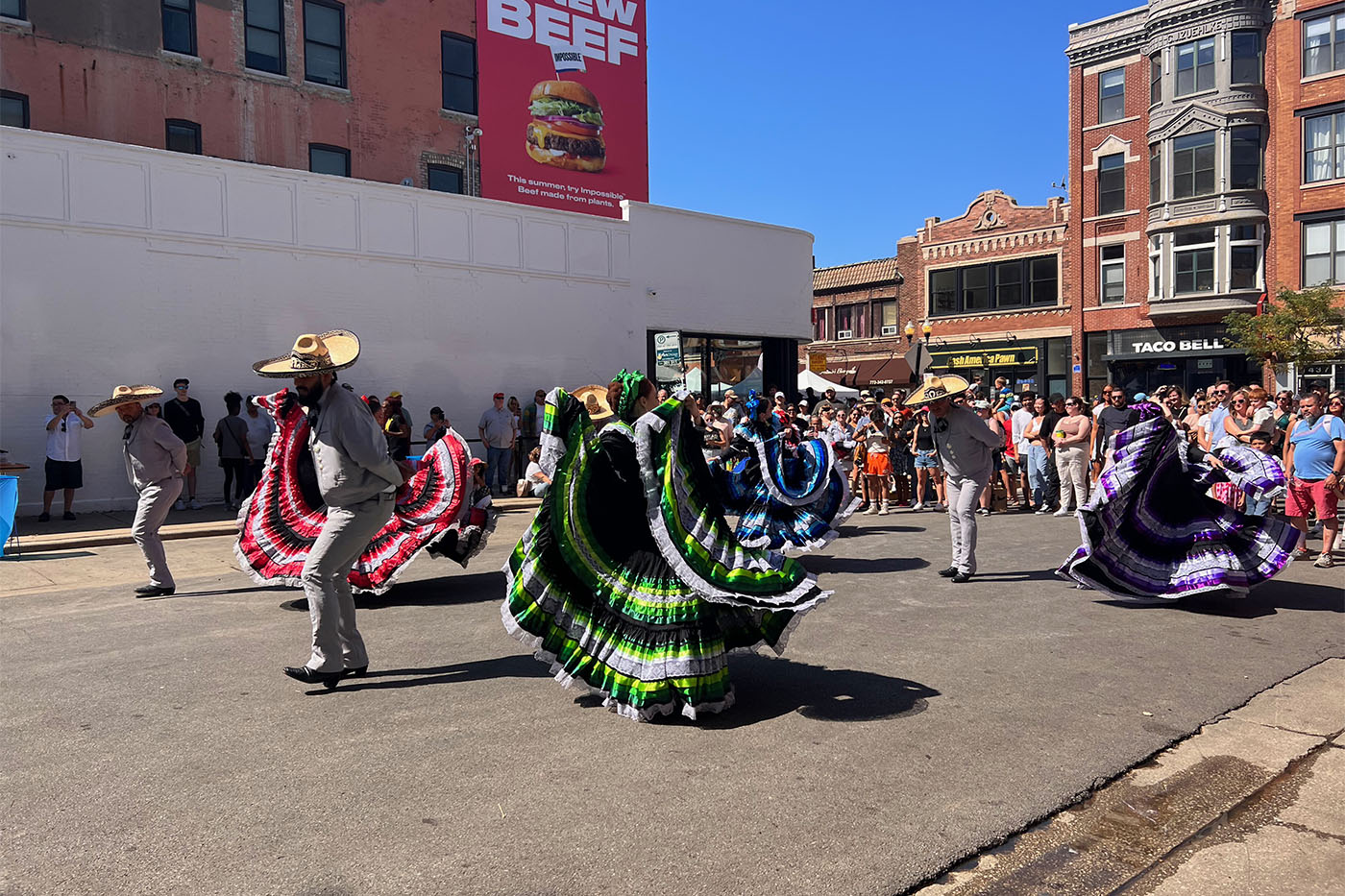
Students in last fall’s Making a Festival class spent the semester dreaming up “Avalanche Festival,” a winter musical festival in Aspen, Colorado, with a day of jam bands and another of electronic music. Each student was assigned to a different team, such as talent or marketing, and together they built the festival from the ground up, including figuring out budget and logistics (like crowd control or how much water they’d need to serve the audience).
“We were all working together, but doing our own thing,” Chamberlain said. “That was the most beneficial thing to happen in class because that’s … exactly how it works in the real world. Understanding the theory and history behind (festivals) helped me to create — with my team at my job — something that was impactful for our crowd. It helped so much.”
This summer, Moore and associate professor of music Andrew Mall were able to bring another festivals-related course into Dialogues of Civilization, this time set in Chicago. For this, the two crafted The Festival Experience, a new course that’s different from its Boston counterpart in that it mixed classroom sessions with volunteering and attending festivals as researchers, observing their pros and cons. Students got to attend a mix of bigger events like Lollapalooza along with some smaller neighborhood music festivals.
At the end of the course, students created a white paper on how to make Chicago and its music scene more accessible and sustainable. They presented this to the Department of Cultural Affairs and Special Events.
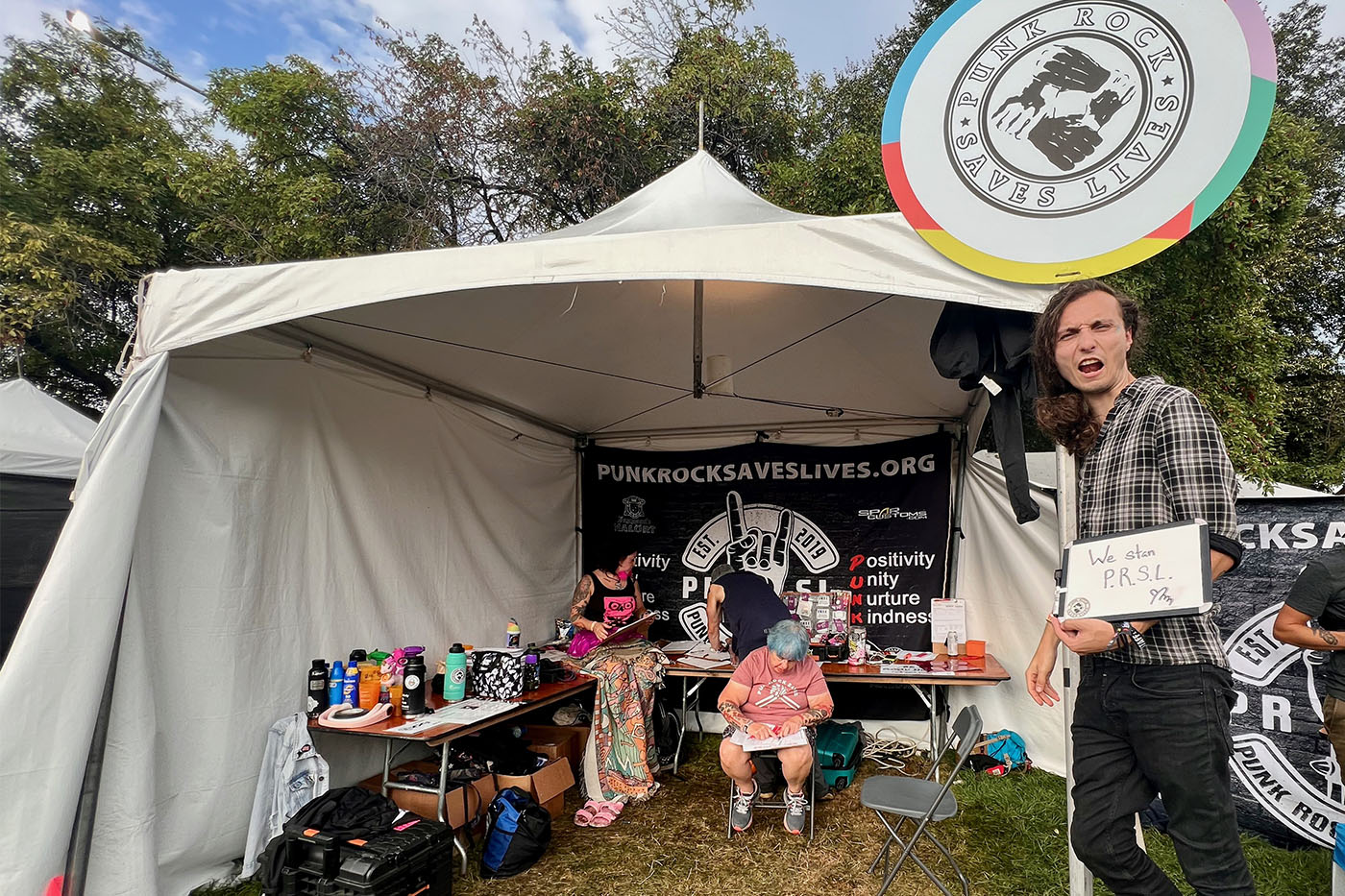
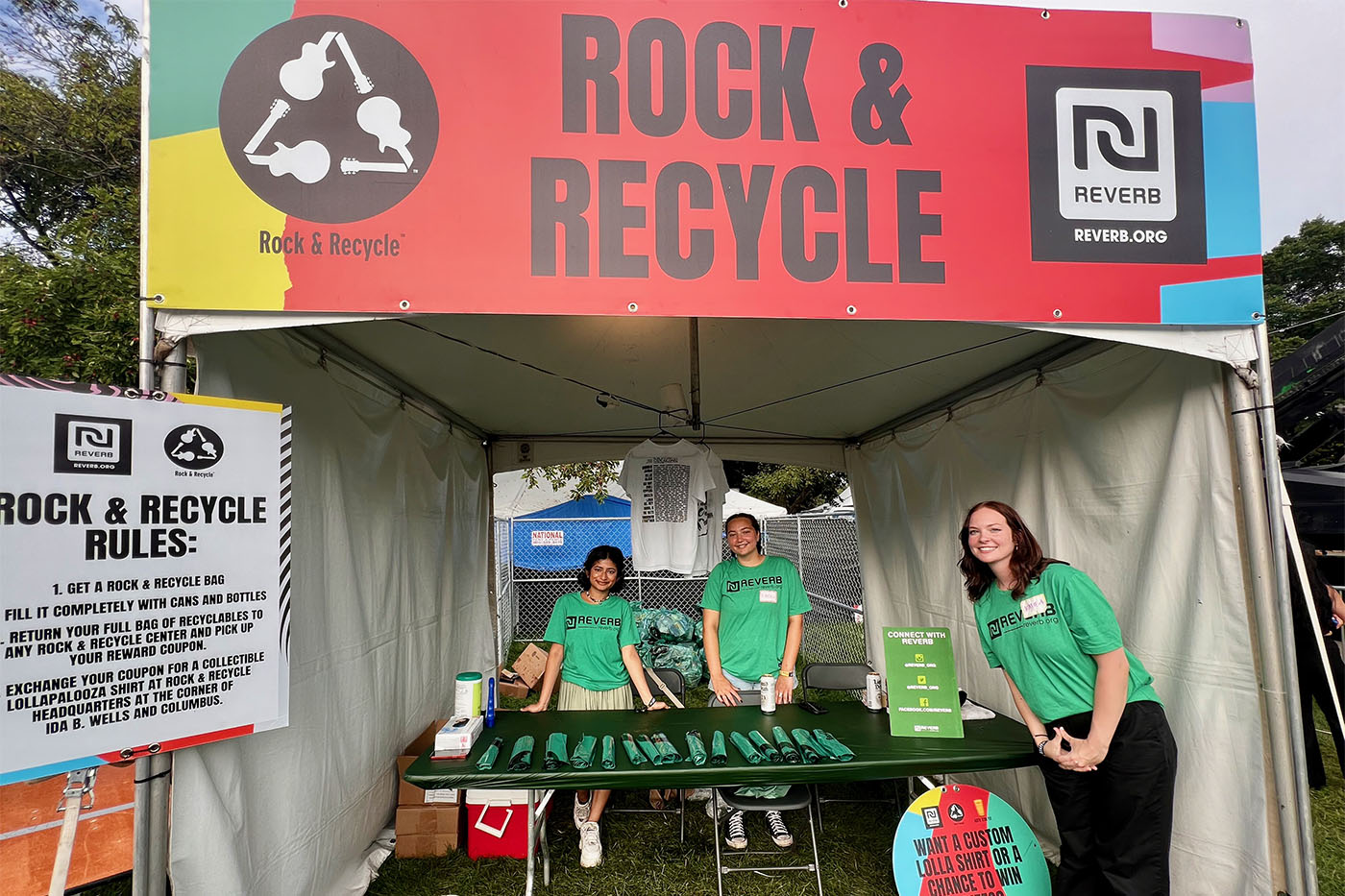
“The knowledge about these communities, individuals and industries that I gained throughout this course and this dialogue were, in many ways, transformative,” said Kelsey Carson, a second-year music industry and communications major who took part in the course this summer. “I now have knowledge about how to interact with and appeal to what communities and fans want in terms of events and music and how to make Chicago and other cities more sustainable and attuned to how to include and highlight a diverse array of people.”
We were all working together, but doing our own thing. That was the most beneficial thing to happen in class because that’s … exactly how it works in the real world.
Duncan Chamberlain, a junior music industry major at Northeastern
While the courses differ in their methods and syllabi, both focus on the four pillars Moore described, as well as how to create festival experiences that are worth the time and resources attendees put into them.
Mall said there’s plans to continue this Dialogues program in other locations around the globe in the future. While Northeastern’s music department does offer courses around live events, he said focusing specifically on festivals is important because they require a different set of skills.
“Several years ago when I was conceptualizing this course, it seemed like a really clear need and could be a very good strength of the music department’s course offerings,” Mall said. “This is one of the growth areas in the music industry. If we were to look at even just revenue, the revenue in live music has been steadily increasing for at least two decades, if not longer. And there’s lots of professional opportunities for students who want careers in music.”
Erin Kayata is a Northeastern Global News reporter. Email her at e.kayata@northeastern.edu. Follow her on X/Twitter @erin_kayata.

